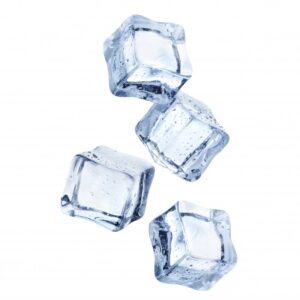
Chewing on ice may seem like a harmless way to cool down or satisfy a craving, but it’s one of the most damaging habits you can develop for your teeth. While it might feel refreshing, the hard, brittle nature of ice can cause serious harm to your teeth and overall oral health over time. If you find yourself crunching on ice cubes regularly, here’s why it’s time to break the habit and protect your smile.
Ice Can Crack or Chip Your Teeth
Your teeth may be strong, but they’re not invincible. Ice is a solid, unforgiving substance that puts intense pressure on your enamel, the protective outer layer of your teeth. Chewing on ice can lead to:
- Cracks or fractures in your teeth.
- Chipped enamel or broken tooth surfaces.
- Damaged dental work, such as fillings, crowns, or veneers.
Sometimes, these cracks may be so small they’re not visible at first, but they can grow over time and lead to significant pain, infection, or the need for more extensive dental treatment like crowns or root canals.
It Can Damage Dental Restorations
If you’ve had any dental work done like fillings, crowns, bridges, or veneers, chewing ice puts that investment at risk. Restorative materials can be strong, but they aren’t designed to withstand the extreme force and temperature of ice.
Biting down on a hard cube can cause a filling to pop out or a crown to loosen, leading to emergency dental visits and costly repairs.
Tooth Sensitivity and Pain
Ice is not only hard, it’s cold. Constant exposure to such low temperatures can cause or worsen tooth sensitivity, especially if enamel has already been weakened or worn away.
You may start to experience discomfort when consuming hot or cold foods, or feel sharp, sudden pain when chewing. This sensitivity can make everyday eating and drinking unpleasant.
It Could Be a Sign of an Underlying Issue
Craving and chewing ice frequently could be a sign of a condition called pica, which involves eating non-food substances. One common cause of pica, especially ice cravings, is iron-deficiency anemia.
If you find yourself compulsively chewing ice, talk to your doctor or dentist. A simple blood test can determine whether your body is lacking iron or if another medical issue is at play.
There Are Safer Alternatives
If you chew ice out of habit or stress relief, consider switching to crushed ice, which is less damaging than large cubes, or try chewing sugar-free gum. If you’re looking for something cold and crunchy, chilled fruits like cucumber slices or frozen grapes can offer a safer, more tooth-friendly alternative.
Chewing ice may seem like a small, harmless indulgence, but it can lead to big dental problems over time. From cracked teeth and damaged restorations to increased sensitivity and hidden health issues, the risks simply outweigh the brief satisfaction. Protect your smile by breaking the ice-chewing habit.
About the Practice
Has chewing ice or other hard substances led to a dental emergency for you? Weiss Dental Arts can help! For damaged teeth, we can make same-day CEREC crowns to provide a fast and convenient solution. Our advanced diagnostic technology means you’re getting state-of-the-art care, and with flexible financing options, we’ll help ease the financial burden of dental work on you. If you need dental care quickly, schedule your appointment online or call (847) 864-0188.
